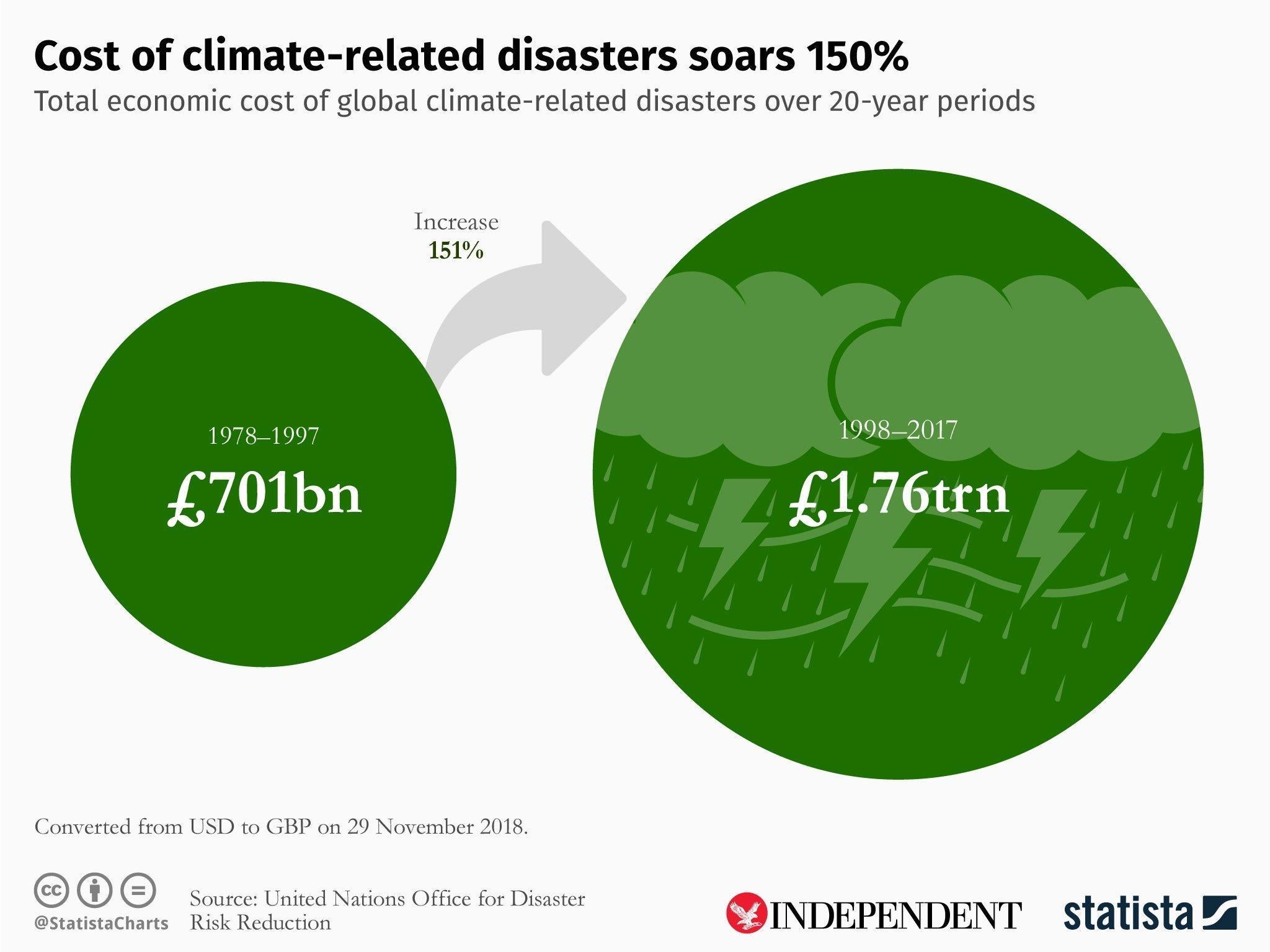Climate change: 2018 set to be fourth hottest year since records began, says World Meteorological Organisation
'It is worth repeating once again that we are the first generation to fully understand climate change and the last generation to be able to do something about it'
Your support helps us to tell the story
From reproductive rights to climate change to Big Tech, The Independent is on the ground when the story is developing. Whether it's investigating the financials of Elon Musk's pro-Trump PAC or producing our latest documentary, 'The A Word', which shines a light on the American women fighting for reproductive rights, we know how important it is to parse out the facts from the messaging.
At such a critical moment in US history, we need reporters on the ground. Your donation allows us to keep sending journalists to speak to both sides of the story.
The Independent is trusted by Americans across the entire political spectrum. And unlike many other quality news outlets, we choose not to lock Americans out of our reporting and analysis with paywalls. We believe quality journalism should be available to everyone, paid for by those who can afford it.
Your support makes all the difference.After months of devastating heatwaves and wildfires around the world, 2018 is set to be the fourth hottest year on record, according to the UN’s specialist weather agency.
Figures released by the World Meteorological Organisation (WMO) for the first 10 months of the year reveal the planet was nearly 1C above the preindustrial baseline.
The 20 warmest years ever measured have been in the past 22 years, and over the past five years warming has averaged more than 1C higher than historical levels.
Scientists are concerned the world is still nowhere near slowing down these soaring temperatures, as thermometers creep closer to the Paris climate agreement’s ambitious 1.5C target.
“These are more than just numbers,” the WMO deputy secretary general Elena Manaenkova said.

“Every fraction of a degree of warming makes a difference to human health and access to food and fresh water, to the extinction of animals and plants, to the survival of coral reefs and marine life… Every extra bit matters.”
Global temperature records stretch back to 1880, the earliest date for which a reliable estimate covering the whole planet can be made. This year comes in behind 2016, 2015 and 2017 in the ranking of the hottest years ever recorded.
With an El Nino event predicted to happen in the coming months, temperatures next year are likely to shoot up again as a natural boost to ocean warming combines with man-made climate change.
Professor Tim Osborn of the University of East Anglia’s Climatic Research Unit, which provides data used in the WMO analysis, said global warming triggered by greenhouse gas emissions was now very clear.
“The last four years were the four warmest years on record because, globally, humans have taken coal, oil and gas out of the ground, burnt them, and so emitted one and a half trillion tonnes of carbon dioxide to the Earth’s atmosphere,” he said.
This summer, alarm bells rang across much of the world as soaring temperatures and extreme weather provided a picture of what the future could look like as a result of the changing climate.
Wildfires struck California and Greece, while a heatwave swept the northern hemisphere from Europe to Japan, and east Africa and India experienced heavy flooding.
Scientists are now more confident than ever in linking such catastrophic events to the rising global temperatures and their impact on global weather patterns.
“The knock-on effects for our regional climates and for severe weather events are beginning to emerge from the background variability of our weather,” said Professor Osborn.
The WMO’s provisional Statement on the State of the Climate in 2018 will add the evidence informing major UN climate negotiations taking place in Poland next week.
On Wednesday, the UN’s environment arm warned that global commitments to cutting emissions must triple to hit the Paris agreement’s 2C target, and increase by five times to hit the stretch target of 1.5C warming.
The UN’s Intergovernmental Panel on Climate Change warned in October that hitting that aspirational target is still technically possible, but would require “unprecedented” changes to every aspect of human life.
“We are not on track to meet climate change targets and rein in temperature increases,” said WMO secretary general Petteri Taalas.
“Greenhouse gas concentrations are once again at record levels and if the current trend continues, we may see temperature increases 3-5C by the end of the century.
“If we exploit all known fossil fuel resources, the temperature rise will be considerably higher... It is worth repeating once again that we are the first generation to fully understand climate change and the last generation to be able to do something about it.”

Join our commenting forum
Join thought-provoking conversations, follow other Independent readers and see their replies
Comments